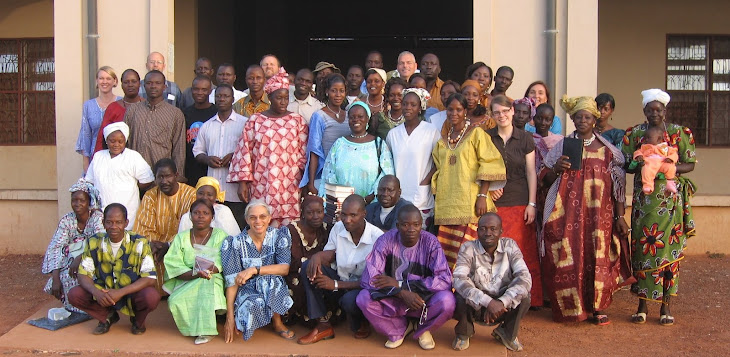
In Mali, where 1 out of every 4 kids dies before age 5, the first month of life is definitely the most critical time. A quarter of all the kids who die in the first 5 years die in the first month of life. Neonatal infections, respiratory problems, and prematurity are the main culprits. Babies get infected more often here because the pregnant women are not followed as closely as in the states. Often women come to our hospital after having been in labor with their water broken for 3 days leading to neonatal infections. Also, as in the states, but much more often here, the babies are frequently under extreme stress in the womb which leads to the passing and aspiration of their own stool (meconium) leading to extreme breathing problems. And, of course, just like all over the world, prematurity is a big problem. In WestAfrica 15.4% of babies are <2500g> 

Thankfully, the cost isn't much for the families since most of our main equipment is donated. We just have to charge enough to cover our staff's salary, electricity and medicines. So we charge $2 a day for the first 2 weeks and then $1 for each day thereafter. At first I insisted on using the US NICU rate of $10,000 per day, but we eventually worked down to this price. :)
Caring for these neonates has been really enjoyable, but it can be pretty difficult as I face challenges here that I never did in the US. Besides adjusting to the obvious differences in technology and staff knowledge level, I have faced challenges such as having to swat flies from inside preemies' incubators, learning how to explain to illiterate moms how to give me dicines at home (19% of Malians are literate, but those are mainly men), as well as asking myself…When a newborn has a temperature of 102 but the room is 110 is that a good thing or a bad thing? Does that mean he is doing a pretty good job keeping his body cool, or that he might die soon from a serious bacterial infection and needs emergent antibiotics? Some days our post-partum room feels like a car turned off in the summer with the windows rolled up. I tried using this analogy with our staff but since none of them have cars, they didn't really get it. :)
dicines at home (19% of Malians are literate, but those are mainly men), as well as asking myself…When a newborn has a temperature of 102 but the room is 110 is that a good thing or a bad thing? Does that mean he is doing a pretty good job keeping his body cool, or that he might die soon from a serious bacterial infection and needs emergent antibiotics? Some days our post-partum room feels like a car turned off in the summer with the windows rolled up. I tried using this analogy with our staff but since none of them have cars, they didn't really get it. :)
 dicines at home (19% of Malians are literate, but those are mainly men), as well as asking myself…When a newborn has a temperature of 102 but the room is 110 is that a good thing or a bad thing? Does that mean he is doing a pretty good job keeping his body cool, or that he might die soon from a serious bacterial infection and needs emergent antibiotics? Some days our post-partum room feels like a car turned off in the summer with the windows rolled up. I tried using this analogy with our staff but since none of them have cars, they didn't really get it. :)
dicines at home (19% of Malians are literate, but those are mainly men), as well as asking myself…When a newborn has a temperature of 102 but the room is 110 is that a good thing or a bad thing? Does that mean he is doing a pretty good job keeping his body cool, or that he might die soon from a serious bacterial infection and needs emergent antibiotics? Some days our post-partum room feels like a car turned off in the summer with the windows rolled up. I tried using this analogy with our staff but since none of them have cars, they didn't really get it. :)